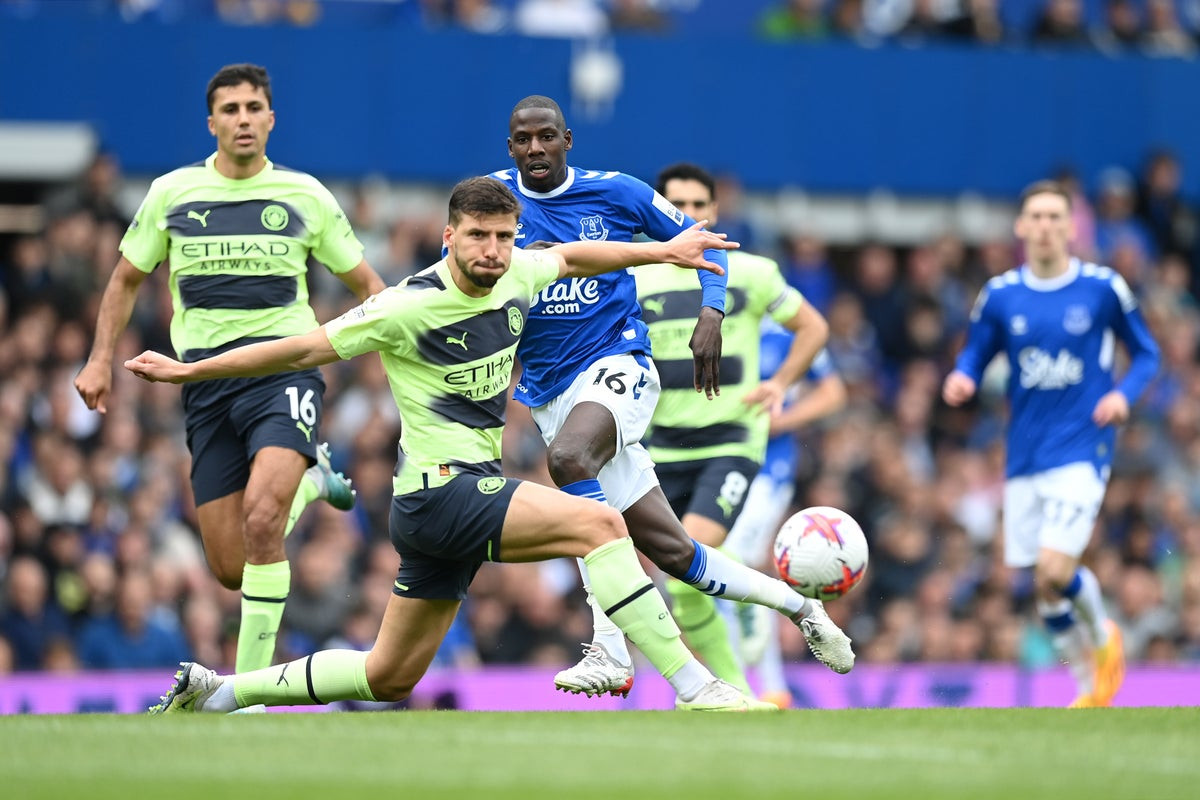If you’re into golf for the money, then try gambling instead…you’ll have better luck there,” goes the oft repeated refrain. Given the low success rate of golf professionals who make the grade to qualify and get playing rights on various international circuits, let alone compete and make money, that’s good advice. That holds true not just for golf but any professional sport.
There is, however, an elite class of exceptions that proves the rule: the small legion of elite players who ply their trade on tourneys like the DP World Tour (Europe), the PGA Tour (US), LIV Golf Tour and even the Asian Tour. On these premier circuits, players compete week after week in events with fabulous purses—all the way from $400,000 (around ₹3.3 crore) in Taiwan Glass Taifong Open (Asian Tour) to the $25 million Players Championship (PGA Tour).
Till a few years back, specifically before the advent of the Saudi-backed LIV Golf Tour, there was a clear hierarchy in place. Players made their way up from national tourneys to continental ones in Asia, then Europe, with the goal of finally competing for the highest stakes at the PGA Tour that enjoyed a monopoly at the top of the heap. Along came LIV Golf Tour in 2022 and everything changed. The new tour began weaning away some of the top pros from the PGA Tour with astonishing signing bonuses, fewer but big-money events and a more relaxed playing schedule.
Broadcast rights are where most of the moolah lies for professional sports tourneys and the PGA Tour is no exception. Players like Rory McIlroy, Collin Morikawa, and Scottie Scheffler are those who move the needle when it comes to viewership and fan interest. According to a recent report by Josh Carpenter of the Sports Business Journal, US viewing figures for Sunday’s final round of the first event of the Playoffs—the FedEx St. Jude Classic—were down 30% on last year.
It was already known that the viewership figures for the Open Championship in April this year had plummeted by 20% compared to 2023. One of the factors believed to have weaned fans from the final day’s action at the St. Jude Classic is a duel between Brooks Koepka and Jon Rahm, who battled down the stretch at a LIV Tour event at the same time. Clearly, retaining top players has become critical for the PGA Tour.
Ergo a significant increase in the tournament purses on the PGA Tour (LIV events started with a $20 million kitty)—a bit of a windfall if you will, as the PGA Tour dips into its coffers just to retain its top players. The FedEx Cup—a season-long competition on the PGA Tour that culminates with a series of Playoff-style events—is a case in point.
This weekend will see the grand finale of the cup at the Tour Championship and the winner will win an eye-watering $25 million. The also-ran will make half of that; all the way down to the 30th spot which awards just over half-a-million dollars. In 2024, the total purse for the FedEx Cup is over $100 million—a significant jump from the $35 million in 2007 (when the first edition of the cup was held). The winner’s spoils have gone up from $10 million (2007) to $25 million this year. More pertinently, the winner’s share of the winnings has gone up $7 million from 2023.
“In this era of inflated purses, does $25 million still get your attention…?” At the penultimate playoff event—the BMW Championship—that was played last week, the second-ranked golfer on the planet, Xander Schauffele, deftly evaded being drawn into a discussion about the FedEx Cup prize money. “It’s interesting to me, I think maybe golf is a gentleman’s game and you’re not supposed to talk about money, but all the media wants to do is talk about money,” he said.
Schauffele’s exasperation with the question is understandable given how often the subject has come up at pressers recently, but it’s certainly a valid question. While sweetening the pot at the FedEx Cup and other big events year on year is de rigueur, there’s been a lot of talk in the media about the bigger purses not being indicative of an increase in value—for sponsors or the fans—but a consequence of two premier golf tours vying for primacy.
There’s public fatigue with the internecine rivalry. Even though the tours signed a “framework agreement”, to “reunify the world of golf”, in June 2023, there’s no sign of a working partnership and the tours continue to operate independently. At the BMW presser, Schauffele suggested that professional golf is being unfairly targeted by the media. “When I look at other sports, when someone gets a $300 million contract, there’s all these positive comments about how someone got their bag or they’ve worked so hard to get this and they deserve it, things like that,” he said, reiterating that for players in the top echelon, money isn’t the driving force.
“Winning $25 million would be really cool and really nice, but I don’t think it’s going to change my life, and I can tell you if I lose and play bad, I’m going to be pretty upset about playing bad and not being able to peak at the right time,” he said. If he does win the FedEx Cup, Schauffele would have made $43 million—the highest ever in a season. But this year, the cup is really Scottie Scheffler’s to lose: the world No.1 has been in imperious form—notching up seven victories and an Olympic gold—raking in about $29 million in the season. If he wins, then he’ll take his season’s tally to over $50 million. And when you make that kind of money, then it’s rarely about the money.
Golfers' Resistance to Change
Golf has been played in this country since at least 1457. That’s the first written record we have of it at least, and enough people were playing then for King James II to issue an act of parliament banning the game. So, we can give golf a few extra decades at least. Probably fair to say then, it’s an established pastime.
Golf has changed quite a bit over the centuries and those early pioneers who incurred Jimmy the second’s displeasure would be astounded to see golf today. Golf is now not just played by a few hundred, maybe a few thousand, archery-practice shirkers. It’s played by 65 million people across the globe.
But those of us in the golf industry, whether writing about it, administering it, providing facilities for play, or equipment to facilitate play, want to see it continue to grow and flourish. To do that, we need new entrants into the game. And there are barriers to entry – cost is the most obvious, but others include the lack of facilities in certain locations, the time the activity takes and, importantly I think, a wider public perception of a lack of inclusivity within the sport.
I don’t think this perception is fair as I’m aware of the efforts being made by all within golf to ensure the sport is diverse and inclusive and open to all. Unfortunately, the perception still exists.
The Resistance of Old Golfers
One of the issues in the UK is just how established the sport is. The great 600-year history of our game is worth cherishing but certain things become engrained over more than half a millennium. Some players, and I absolutely include myself in that “some,” like the older ways. We are resistant to change. I fear that mine, and others’ desire to cling on to a bygone era of halcyon golfing days is actually hampering the growth of the sport.
The World Handicap System
The World Handicap System (WHS) provides a case in point. I have written extensively about my concerns over the new system… I don’t think it suits our (certainly my) culture of play in this country. That culture of play being that a high percentage of outings are competitive medal stroke play games. I stand by my thoughts on that one. Consistent and better golfers in the UK are finding the new(ish) system puts them at a disadvantage.
But what I try to remember, and have also considered in writing is that a key reason for the change to WHS was to make handicapping more accessible, more understandable and universal. That’s important too. My selfish little issues around not having a chance in the Spring Meeting are insignificant, aren’t they? My attitude and opinions on this one are what The R&A is up against! I am guilty sometimes of saying, ‘yes, we want to grow the game, but we don’t want it to impact on our little golfing world in any way.’ It’s golfing NIMBYism.
Ready Golf
Something The R&A and USGA have been keen to encourage over the last couple of years is “Ready Golf”. The idea behind it is to counter slow play and to make golf less old fashioned and order filled, thereby more appealing to prospective new golfers.
Well, I would say, although most British golfers probably agree with the sentiment of ready golf, relatively few practise it as far as I have witnessed. I think that’s mainly because of engrained behaviour. From the time they were old enough to tee up on the main course, British golfers have been told to regimentally respect the “honour” system and never play out of turn. Even now, when the governing bodies are encouraging them it might often be prudent to do so, they simply can’t break the habit. In the UK, this is a great example of golf’s heritage holding it back.
The Future of Golf
Golf clubs across the country strive to move with the times, to appeal to younger generations and new starters. Established golfers from Thurso to Thurlestone are proposing and implementing policies to achieve that end. The problem is though, established golfers quite like the way golf has been established. They like their historic, characterful… no, not dated! characterful clubhouse, they like the senior section’s jacket and tie lunches, they like bridge night on a Thursday, they like the draw system for the Saturday medal… They like it as it is. Ostensibly they know things must change for new blood to be attracted to the sport, but they (we) don’t want to change!
I like golf as it is, but I also want it to be thriving 50 years from now, as per Martin Slumbers’ mantra for The R&A during his excellent tenure in charge. So, I say, let’s embrace ready golf fully, let’s try to get on board with WHS (they will improve it – I have every finger crossed for that,) let’s be open minded to a new carpet or a new menu in the clubhouse, to different formats for club competitions, to more mixed and cross-generational events. Golf’s heritage is great and we should be proud of it, but the future is where we’re inevitably going and living in the past is a folly.

















